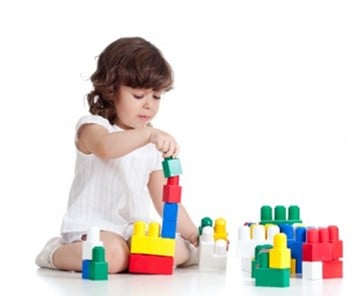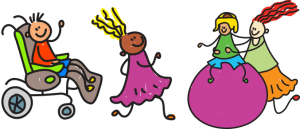Many parents feel frustrated and very anxious about making the right treatment choices for their children. I am therefore writing a blog series to share some information with you on some of the treatment approaches I use within my private practice.
What treatment approaches are available to help my child with Cerebral Palsy improve their motor function?
This list below shows some of the treatment approaches available to your child. Your physiotherapist will work alongside the wider healthcare team of doctors and therapists. They will help you decide which treatment approaches may be suitable for your child.
This is not an exclusive list of treatments.
Physiotherapy Specific Interventions:
- Neurodevelopmental Treatment
- Goal directed strength / functional training (GDT)
- Active and passive sustained stretching
- Aquatic Therapy
- Early Intervention (EI) and Home Exercise Programme (HEP) – These are not specific treatment techniques though an essential approach.
- Mobility devices and equipment (specialised seating and standing frames)
Therapy and Medical Treatment interventions:
The interventions below are often carried out with a team of healthcare professionals such as physiotherapists, orthotists, orthopaedic consultants, occupational therapists, neurologists and paediatric consultants.
- Optimal Segmental Kinematic Alignment Approach to Rehabilitation (OSKAR) – Orthotics / Leg splints
- Lycra
- Serial casting
- Constraint-Induced Movement Therapy (CIMT)
- Single Event Multilevel Surgery (SEMLS)
- Botulinum Toxin Injections and or tone modulation medication
- Neurosurgical (Selective Dorsal Rhizotomy / Deep Brain Stimulation / Intrathecal Baclofen Therapy)
I have not discussed Complementary and alternative therapies for cerebral palsy in this series of blogs.
I shall continue this blog series with a brief overview of Goal directed strength training which I use in conjunction with other therapeutic interventions when treating children with Cerebral Palsy.
What is Goal Directed Strength / Functional Training (GDT)?
This type of intervention is the underpinning of everything we do. Goal directed training (GDT) involves a child with cerebral palsy practicing specific tasks that are needed for everyday life and which they find a challenge.
This intervention is also referred to as:
– activity based functional therapy
– task oriented therapy
– task specific training
– goal focused task practice
- The approach focuses on assessing the quality of your child’s movement. It is essential that your physiotherapist understands your child’s body fully.
- For example, the impact of muscle stiffness, impact of involuntary movements and weakness, selective motor control and strength difficulties. As well as other factors such as vision, hearing, communication, ability to learn etc.
- Your physiotherapist will identify the specific reasons that may be preventing your child from doing what they want to do.
- It is important that the physiotherapist incorporates the individual child, the task itself and the everyday setting in which the task is carried out. All have a part to play when learning or improving a movement or motor skill.
- This approach incorporates developmental facilitation and strengthening techniques.
- The aim is to engage your child through play, functional and fun activities.
- It is important to ensure you and your child can clearly see progress through regular reviews of their goals.
- This approach is implemented with an intensive home programme.
- Your physiotherapist will observe, analyse and interpret functional task performance as part of this treatment.
- It is important that the treatment is individualised and tailored to your child’s specific problems, aims and goals.
- It is important that your physiotherapist manages any compensatory motor behaviours.
- Goal directed training is appropriate for children with cerebral palsy of all ages and all levels of severity.
- Goal directed training can be used by itself or alongside other interventions.
How do we choose and measure the goals?
- Your physiotherapist will help you pick the goals.
- The goals should be SMART
– Specific
– Measurable
– Attainable
– Relevant
– Time based
- It is important that the goals are chosen by you and your child.
- It is best to choose goals that help to improve function and / or gross motor skills
- Goal directed therapy can be uses with all types of therapists such as Occupational Therapy and Speech and Language Therapists.
- It is important that the physiotherapist, child and family discuss the best measure to use to set the goal and assess its success. A baseline measure will need to be completed using a validated goal outcome measure assessment. This will then be repeated at regular intervals.
- Your physiotherapist will teach you and other family members how to carry out the goal directed therapy so that you are able to practice. It is important to practice the task little and often throughout the day.
- This means families will have lots of opportunities to integrate practice time into their everyday routines.
- For an intervention to be truly goal directed training it must begin with a goal and then the goal must be practiced until it is achieved.
Top Tip
Write down all your questions about the different therapy approaches you are considering and discuss these with your physiotherapist and medical team. Some will not be suitable for your child and your team can explain why. Some will require a special assessment with a team that have expertise with that procedure / treatment.
Cerebral Palsy is the most common childhood movement disorder in the UK. There are lots of treatment options available for your child. And lots of ongoing research to investigate the benefits of these treatment options.
Contact us for an informal chat to ask any questions specific to your child. We have children’s physiotherapists who are specialists working with children with Cerebral Palsy within Surrey, Sussex, Kent, Hampshire and parts of London. https://wanderlusttherapyforkids.com/contact/



